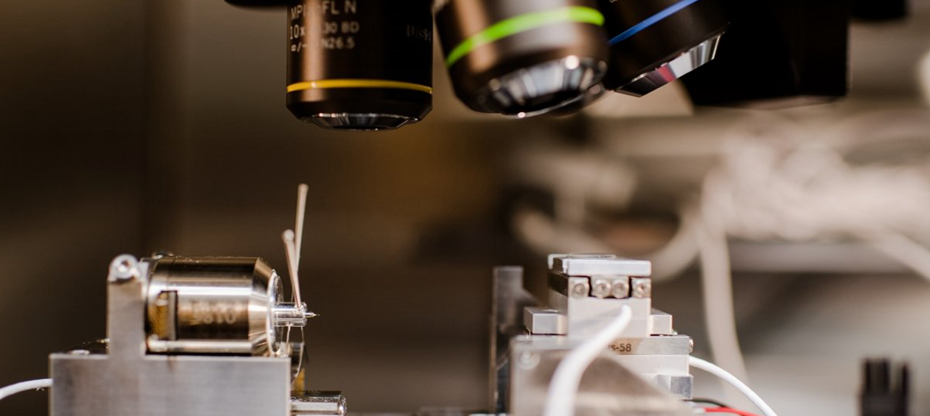Lithium Iron Phosphate Battery Prices: What You Need to Know
Lithium iron phosphate (LiFePO4) batteries are becoming increasingly popular in the energy storage industry due to their excellent safety record, long lifespan, and high energy density. As with any new technology, the cost of LiFePO4 batteries has been a major barrier to their widespread adoption. However, as production has increased and economies of scale have kicked in, prices have started to come down. In this article, we will explore the current state of LiFePO4 battery prices and what factors are driving their cost.
First, it is important to understand the key components of a LiFePO4 battery. The battery consists of a cathode (positive electrode), an anode (negative electrode), a separator, and an electrolyte. The cathode is made up of lithium iron phosphate, while the anode is typically made of graphite. The separator is a thin layer of material that keeps the cathode and anode from touching, while the electrolyte is a solution that allows ions to move between the electrodes during charging and discharging.
The cost of a LiFePO4 battery is primarily determined by the cost of its materials. The most expensive component is the cathode, which is made up of lithium iron phosphate, a relatively rare material that must be mined and refined. Other factors that affect the cost of LiFePO4 batteries include the size and complexity of the battery, the number of cells it contains, and the quality of the components used.
The price of LiFePO4 batteries has fallen significantly over the past decade, and is expected to continue to decline in the coming years. In 2010, the cost of a LiFePO4 battery was around $3,000 per kWh, while today it is closer to $200-300 per kWh. This dramatic drop in price is largely due to improvements in manufacturing processes, economies of scale, and increased competition.
One of the main factors driving down the cost of LiFePO4 batteries is the increasing use of automation in the manufacturing process. As more companies invest in automated production lines, they can produce batteries more quickly and efficiently, reducing labor costs and improving quality control. Additionally, innovations in battery design and chemistry are making LiFePO4 batteries more efficient and reliable, which is helping to lower costs even further.
Another key factor in the declining cost of LiFePO4 batteries is economies of scale. As production has increased, the cost of materials and components has fallen, making it more affordable to manufacture larger and more powerful batteries. This has led to the development of new applications for LiFePO4 batteries, such as in electric vehicles, which require large, high-capacity batteries.

Despite the recent price drops, LiFePO4 batteries are still more expensive than other types of batteries, such as lead-acid or nickel-cadmium batteries. However, LiFePO4 batteries offer several advantages over these other technologies, including longer lifespans, higher energy densities, and better safety records. As the market for energy storage continues to grow, it is likely that LiFePO4 batteries will become increasingly competitive with other battery types in terms of cost.
In conclusion, the cost of LiFePO4 batteries has dropped significantly in recent years, making them more affordable for a wider range of applications. Factors driving down the cost include improved manufacturing processes, economies of scale, and innovations in battery design and chemistry. While LiFePO4 batteries are still more expensive than other types of batteries, their superior performance and safety make them an attractive option for energy storage applications. As production continues to increase and new applications emerge, it is likely that LiFePO4 battery prices will continue to fall.
-
 Lithium iron phosphate (LiFePO4) batteries are a popular choice for many applications, including electric vehicles, solar power storage, and backup power systems. When it comes to choosing the right supplier for your LiFePO4 batteries, there are several factors to consider. In this article, we'll provide tips for selecting the right LiFePO4 battery supplier for your needs. Quality of the Batteries...اقرأ أكثر
Lithium iron phosphate (LiFePO4) batteries are a popular choice for many applications, including electric vehicles, solar power storage, and backup power systems. When it comes to choosing the right supplier for your LiFePO4 batteries, there are several factors to consider. In this article, we'll provide tips for selecting the right LiFePO4 battery supplier for your needs. Quality of the Batteries...اقرأ أكثر -
 The 48V LiFePO4 battery is a type of rechargeable battery that has gained popularity due to its long-lasting performance and reliability. LiFePO4 stands for Lithium Iron Phosphate, which is the chemical composition of the battery's cathode material. This technology is becoming increasingly popular in various applications, including electric vehicles, solar energy storage, and backup power systems. In this article, we...اقرأ أكثر
The 48V LiFePO4 battery is a type of rechargeable battery that has gained popularity due to its long-lasting performance and reliability. LiFePO4 stands for Lithium Iron Phosphate, which is the chemical composition of the battery's cathode material. This technology is becoming increasingly popular in various applications, including electric vehicles, solar energy storage, and backup power systems. In this article, we...اقرأ أكثر -
 3.2V LiFePO4 Battery: A Comprehensive Overview The 3.2V LiFePO4 battery, also known as the lithium iron phosphate battery, is a rechargeable battery that has gained widespread use in the energy storage industry due to its various advantages over other types of batteries. In this article, we will provide a comprehensive overview of the 3.2V LiFePO4 battery, including its composition,...اقرأ أكثر
3.2V LiFePO4 Battery: A Comprehensive Overview The 3.2V LiFePO4 battery, also known as the lithium iron phosphate battery, is a rechargeable battery that has gained widespread use in the energy storage industry due to its various advantages over other types of batteries. In this article, we will provide a comprehensive overview of the 3.2V LiFePO4 battery, including its composition,...اقرأ أكثر -
 The automotive industry is constantly evolving and seeking new ways to improve the performance, efficiency, and sustainability of vehicles. One area of focus is the power technology used to start and run vehicles. Traditional lead-acid batteries have been the standard for decades, but now a new technology has emerged: the lithium starter battery. Lithium starter batteries offer several advantages...اقرأ أكثر
The automotive industry is constantly evolving and seeking new ways to improve the performance, efficiency, and sustainability of vehicles. One area of focus is the power technology used to start and run vehicles. Traditional lead-acid batteries have been the standard for decades, but now a new technology has emerged: the lithium starter battery. Lithium starter batteries offer several advantages...اقرأ أكثر -
 In today's world, power solutions are critical for many different applications. From powering homes and businesses to providing energy for electric vehicles, power storage is a necessity that is only growing in importance. As such, it is essential to have reliable and long-lasting power solutions that can meet the increasing demand. One such solution is the high capacity 100AH LiFePO4...اقرأ أكثر
In today's world, power solutions are critical for many different applications. From powering homes and businesses to providing energy for electric vehicles, power storage is a necessity that is only growing in importance. As such, it is essential to have reliable and long-lasting power solutions that can meet the increasing demand. One such solution is the high capacity 100AH LiFePO4...اقرأ أكثر -
 The 12V LiFePO4 battery is a high-performance power solution that is designed to meet the power needs of various devices and appliances. It is known for its durability, efficiency, and reliability, making it a popular choice for many applications. One of the main advantages of the 12V LiFePO4 battery is its long lifespan. It can last up to 10...اقرأ أكثر
The 12V LiFePO4 battery is a high-performance power solution that is designed to meet the power needs of various devices and appliances. It is known for its durability, efficiency, and reliability, making it a popular choice for many applications. One of the main advantages of the 12V LiFePO4 battery is its long lifespan. It can last up to 10...اقرأ أكثر -
 LiFePO4 rechargeable batteries have been growing in popularity for a variety of applications, particularly in electronic devices and transportation. Understanding the lifespan and performance of LiFePO4 batteries is crucial for making an informed decision on whether they are the right choice for your needs. LiFePO4 batteries have a longer lifespan compared to other rechargeable batteries, such as lithium-ion batteries,...اقرأ أكثر
LiFePO4 rechargeable batteries have been growing in popularity for a variety of applications, particularly in electronic devices and transportation. Understanding the lifespan and performance of LiFePO4 batteries is crucial for making an informed decision on whether they are the right choice for your needs. LiFePO4 batteries have a longer lifespan compared to other rechargeable batteries, such as lithium-ion batteries,...اقرأ أكثر

